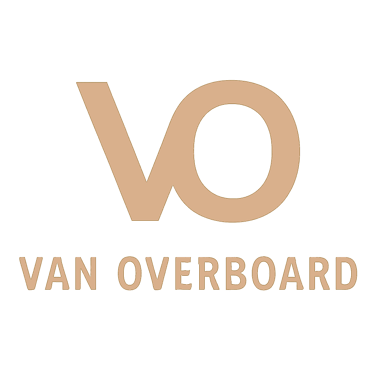An exploration of truth and the ways that we can deal with it.
Humans doing not being
The big disconnect.
AI RENDITION ARTICLES
Van Overboard
9/27/20243 min read
Being, Not Just Doing
Over a decade ago, I heard a phrase that has stayed with me ever since: “Humans doing, not being.”
It was something I came across on a video blog—simple, almost throwaway in the moment—but it landed in my mind like a seed. You know that feeling when a stranger hands you a book with a title that speaks to something deep inside you? You don’t read it straight away. Instead, it sits on a shelf, quietly waiting, calling to you now and then in your thoughts.
Some ideas are like that. They echo through your mind for years before they begin to make sense.
I can only speak from my own life, from my own limited perspective. But I think each of us has something—some activity, passion, or interest—that brings us alive. Something that lets us forget time, forget expectations. For some, it’s creative: writing, painting, playing music. For others, it’s found in the craft of physical work—carving, building, shaping the world with hands and tools. Or perhaps it’s simply found in being present with others, helping, giving, caring. Whatever it is, it has a quiet magic to it. It pulls us closer to who we really are.
Yet we live in a world that often pulls us away from that state of being, urging us instead toward constant doing. We follow routines, meet deadlines, tick boxes—busy surviving, busy achieving, busy proving something.
But are we being?
As part of nature, we are wired to be adaptable, sensitive, connected to our environment. There’s a calmness in our natural state, one that doesn’t need constant stimulation or movement. But somewhere along the way, many of us were conditioned to equate stillness with laziness, introspection with weakness.
Of course, we all need to survive. We need to provide—food, shelter, education, emotional care—for ourselves and those we love. And when those needs aren’t fully met, we adapt. We build coping strategies, adjust to our surroundings. Over time, these adaptations shape not only us, but the societies we live in.
As our collective story evolved—from small tribal communities to industrial societies and global superpowers—we gained technology, infrastructure, and systems. But what did we lose along the way?
It’s hard to say. Life is short, and we’re often too busy managing the day-to-day to see where the arc of humanity is truly heading. Are we moving toward greater harmony, or are we gradually being replaced—our essence eroded—by systems and entities smarter, faster, but somehow less human?
I believe there was once a time when we were more deeply attuned to our environment, more in control of our own lives. I also believe that just like families, cultures around the world have had to adapt in response to pressure—political, environmental, economic. Some traditions faded into history. Others were overwritten. In many cases, what replaced them is less nourishing to the individual spirit.
And yet, no matter where we come from or what we’ve been through, we are still human beings.
We enter this world with spirit, with choice—however limited that choice may become. It’s true that life can break a person, strip away hope, or bury individuality beneath layers of expectation and survival. But the essence is still there. Beneath the noise, beneath the doing, we are still here.
The future will test us further. New societal forms will rise and fall. And some will seek to strip humanity down to mechanized obedience, pushing us to be more productive, less mindful—soulless, perhaps. But we aren’t machines. We are not meant to simply do.
I like to believe we can come full circle.
That we can return to a more balanced way of living—where being is not a luxury, but a birthright. A world where individuality is not only protected, but respected. Where different cultures, ideas, and paths can coexist with mutual understanding. And where sovereignty—our true inner authority—is something no system or institution can take from us.
That’s the kind of future worth imagining.
Thank you for reading.
